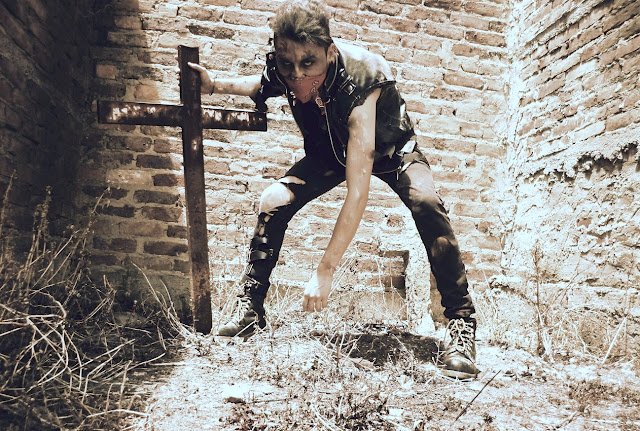Shocking Secrets of the Mysterious Zombies: Voodoo Rituals, Supernatural Powers, and the Undead Phenomenon Revealed!
We're talking of the zombies.
While the concept entered pop culture in the 20th century and became a type of horror monster more similar to the medieval style vampires, the concept was at first a folk belief and somewhat less gorey than the brain-eating, contagion-spreading creatures of Hollywood.
The earliest mentions of zombies in English describe only evil spirits, usually ghosts of the dead. The Oxford English Dictionary admits the probability that the word is related to duppy and jumbie, other regional terms for such spirits. They bear some similarity to the intranquil spirits (plural) of Latin American lore.
The idea of the zombie as a fully reanimated dead person seems to be uniquely Haitian. Carlos Esteban Deive mentions them in his book of Dominican magic, Vodu y Magia en Santo Domingo, but specifying that the tales are only told near the Haitian border or in industries that have attracted Haitian workers, where the foreign folklore has leaked over. Even William Seabrook, the man who popularized the concept in the English-speaking world, described it as "exclusively local" to Haiti.
The usual tale is that a bokor (witch doctor) identifies the victim who will become a zombie whilst they are alive -- they are often selected by enemies as a type of revenge, or by those who wanted physical labor that the living person was unwilling to provide, or by loved ones who promised them in exchange for some favor (compare giving up one's first-born son to a demon -- the trade must be a real sacrifice). The bokor rides his horse, seated backwards, to the house of his victim. He then sucks out the soul of the victim, trapping it in a bottle or in a datura blossom or even in his bare hands. The victim grows ill and dies after a short time, often only a few hours. The bokor later finds where the victim has been entombed (the French style above-ground entombments are the Haitian norm, rather than English style burials) and returns by night with the captured soul in hand, wafts it under the dead man's nose like a smelling salt, and takes the body away where a potion is given that renders them into a subservient zombie. Only eating food containing salt will awaken them -- Seabrook tells that by doing this, they will recognize that they are dead and immediately seek to return to their graves, falling truly dead as soon as they touch the stones. But evidently even that cure is dubious, as based on an urban legend Zora Neale Hurston provides about the zombified "Marie M." whose bokor had died and left his wife with her unwanted zombie. Instead of using this simple and well-known method, the wife was reduced to sending the zombie away to a European convent.
Embalming the dead or otherwise rendering the corpse unsuitable for physical labor was a means of ensuring loved ones would not be resurrected as zombies. The very poor would sometimes resort to burying the bodies in their own yard, so they could supervise the grave till the danger was passed. It was presumed that after about three days' passing, a corpse would be too far decayed to be useful as a zombie.
While writing up the entry for Etymonline on zombie, it was apparent to me that there was more than one zombie word, even if the word is the same. If you've ever been confused by tales of Voodoo practitioners "worshipping zombies," the culprit is the Angolan word nzambi meaning "deity." While the origin of the Haitian word is unsure, it seems likely to be connected to Kikongo djumbi, "ghost."
Zora Neale Hurston summarized her findings on a radio show some years after publishing Tell My Horse. She recounts meeting Felicia Felix-Mentor, a long-dead woman who had been identified as a resurrected zombie -- though the doctors at the hospital where she was taken denied that Felix-Mentor was the zombie-woman, and that the initial identification was not only mistaken but proven impossible. The account of Dr. Mars is to be found here: The Story of Zombi in Haiti.
Contrary to Zora Neale Hurston's certainty that zombies were real as a result of scientific methods, no such evidence has come to light in the last century.
